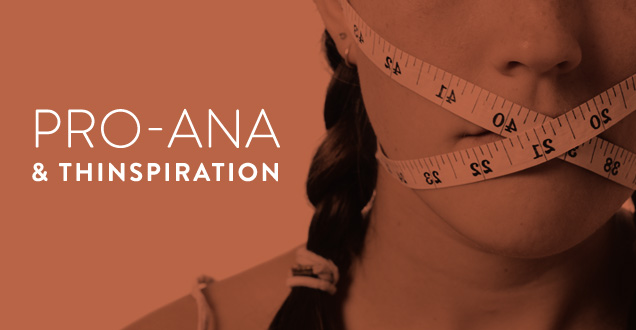
Before the internet became a constant presence, body image distortion, body shame and related disorders such as anorexia, bulimia and binge eating were almost exclusively private matters. Most of us wouldn’t have even considered sharing our secret behaviors or shameful thoughts and feelings in any kind of public forum. Contrast that “old-fashioned” mindset with the current state of constant interaction and communication available to us 24-7. Unlimited access plus the perception of safe anonymity provided by computers frees us to expose and exchange our most private thoughts (and selfies) in our most vulnerable moments. At the same time that this freedom offers an outlet we might otherwise lack, it deprives us of the opportunity to process or consider whether this exchange is harmful or helpful, wise or foolish, supportive or destructive. In times when we need the most support for shaky self-esteem, difficult emotions, or a body that doesn’t meet our perfectionistic standards, we instead find self-proclaimed experts and online communities that preach thinness, promote eating disorders and provide support and praise for dysfunctional eating behaviors.
When these online communities, websites and individual posters focus on the restrictive eating and dieting behaviors common to anorexia nervosa, they are termed “Pro-Ana.” Those promoting the compensatory behaviors associated with bulimia nervosa are called “Pro-Mia.” When they focus on images or selfies (whether genuine or computer-modified) that depict extreme thinness, punishments for eating, or inappropriate weight loss, they are called “Thinspiration” or “Thinspo.” “Fitspo” sites focus on images of “fitness” for purposes of comparison, shaming and diet/exercise adherence. In many cases the four themes are so intertwined that they are indistinguishable.
Pro-Ana, Pro-Mia,Thinspiration and Fitspiration sites and communities allow users to share their stories of what they ate (or, more often, didn’t eat), their excessive exercise behaviors, and “tips” for how to be or become anorexic or bulimic. Members often develop a dangerously enthusiastic camaraderie among themselves, cheering each other on for their “successes” at practicing their unhealthy behaviors.
The unfortunate purpose of these sites and communities within sites is to provide users with validation for their dysfunctional behaviors. Whether spoken or unspoken, the promise of these websites is that abnormally controlling your weight and eating is the solution to your interpersonal problems, the best way to feel better when you are feeling badly, and the escape from your shameful feelings or experiences. Of course this is a faulty premise, and dysfunctional eating and exercise behaviors do not in fact solve larger and unrelated issues. Contrary to what you may read on these sites, this is quite different from offering support for someone struggling with similar issues. The goal of a healthy support group is to help individuals recover. The goal of Pro-Ana, Pro-Mia and Thinspo sites is to inhibit recovery and promote mental illness, malnutrition, and evasion of detection and intervention. This results in users of these sites being victimized at the same time that they believe they are being empowered.
Although the direct causes of eating disorders are most likely biological and occurring in the brain, environmental factors such as social pressure and learned behaviors such as dieting can trigger these dangerous brain changes. This means that although a website cannot directly cause an eating disorder (in fact, many individuals who stumble across these sites are appropriately horrified or nonplussed), by encouraging the behaviors that DO cause eating disorders, the sites act as a gateway to eating disorders and the dangers they present. “Normalizing” abnormal behaviors, that is, making them seem like they are safe and respectable instead of dangerous and inappropriate, leads users to form an unhealthy and inaccurate sense of how to progress toward our goals, or even if our goals are worth pursuing. Repeated exposure to images of abnormally thin bodies warps our sense of our own body size and shape, increases self-consciousness, body shame and the sense that we are being watched and judged at all times, and leads to hyper-inspection of individual body parts of ourselves and others.
Because Pro-Ana, Pro-Mia and Thinspo sites are pervasive and easy to access, awareness is key to protecting yourself, your loved one with an eating disorder, and your children and teens from participation that can lead to initiation or relapse of an eating disorder. If you are concerned about your own or a loved one’s eating or exercise behaviors, including resistance to recovery exacerbated by damaging website communities, please call Casa Palmera at 866-768-6719. Our phones are answered 24 hours, 7 days a week, and we are happy to help you connect with the help you are seeking.



